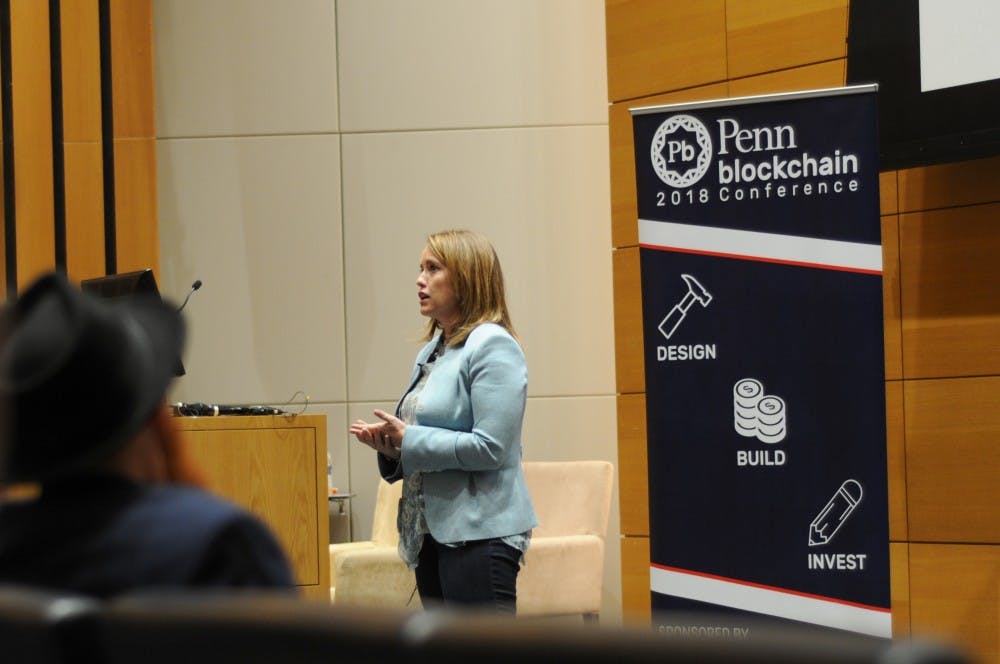The inaugural Penn Blockchain conference involved speakers at the forefront of blockchain’s development and more than 300 attendees.
The conference held in Huntsman Hall examined how blockchain could impact society through decentralization across a variety of industries, from economic development, to entrepreneurship, to the fundamental ideas of money and trust.
Dean of the Wharton School Geoffrey Garrett, who gave a keynote speech to open the conference, describes blockchain as "an alternative way to do money."
“The notion of a decentralized, verifiable, and encrypted ledger shared by everybody is a really enticing one," Garrett said.
Conference co-chairs and 2018 Wharton graduate students Abhinav Prateek and Jitin Jain also founded Penn Blockchain club, which they made sure included members from diverse backgrounds.
“Did that come with challenges? Of course yes. But the benefits have far, far outstripped the challenges,” Jain said. “We realized the importance to start a Penn-wide blockchain club, encompassing students from various fields such as engineering, law, and MBA. From there began the journey of building the club.”

“The interest and enthusiasm of the Penn community has motivated us to achieve more and more,” Jain added.
The 'fintech' trend has caught on at Wharton, but many students want more
These Wharton startup founders want to provide an alternative to student loans
Garrett agreed with Jain, emphasizing the importance of student-led activities on campus in his welcome keynote speech.
“Student-led activities are unbelievably important and they actually play this innovation role in the University, and it is a role that I increasingly embrace," Garrett said. "This genuinely is an innovation in the way the University of Pennsylvania works."
Garrett then stressed that the development of blockchain technology should be a collective effort, which would benefit from the expertise of people from vastly different fields of study.
“The fact that this is not ‘Wharton Finance’ is very important. It's more than that,” Garrett said. “It’s the fusion of technology and finance, and it is interdisciplinary throughout this entire university.”
The conference consisted of plenary sessions for all conference members to attend with several optional panel events that ranged from social good, to cryptoassets, to health care.

Albert Wenger and Elizabeth Stark participated in a plenary session moderated by Wharton professor Kevin Werbach.
Attendee and 2011 Wharton graduate Franklin Bi said it was great to see "familiar faces" from his industry and to meet "eager students," but he thought students needed to know that blockchain is not something one can "jump right into" without prior work experience in related fields.
Toward the end of the conference, keynote speaker and IBM's Director of Global Product Management Kathryn Harrison shared her vision for blockchain and its innovative and interdisciplinary nature.
“[Blockchain] is really about changing how businesses and industries rely on each other,” Harrison said. “In order to do that, you need not just technologists, but you need businesspeople, you need bankers, you need lawyers, you need all sorts of people, in order to imagine … when you can share data and transact across companies in ways that were previously unimaginable, what can you do?”
“I think 98 percent of the blockchain community is actually after the same goal, which is to make information more accessible, to make the world a better place,” Harrison continued. “Ultimately, blockchain is about trust, more than anything."



